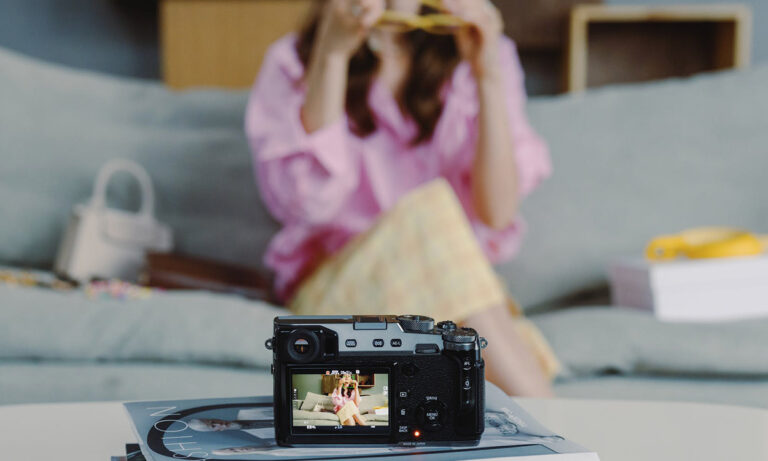Influencers are rebranding themselves as deinfluencers by telling us what not to buy

Remember the days of shameless influencers pushing products they would never use otherwise in their videos? You couldn’t go more than three seconds on your preferred social media platform without stumbling upon a paid partnership, sponsored video, or PR haul. These phoneys still exist, however, their popularity is now beginning to dim due to a new influencer trend dominating the algorithm. 2023’s new obsession? A craze that desperately tries to paint the pusher as knowledgeable and ‘on your side’. The problem is, what’s in it for them?
Enter the deinfluencer. The latest in influencer culture, helping make their inauthentic, heavily branded personalities seem relatable and restoring some of the authority they’ve lost over the years.
What even is deinfluencing?
Long story short, influencers are no longer trying to build their brand via personal endorsements, but instead work against the grain to advise their followers what not to buy. The trend is yet another attempt for these social media experts to level the field with their audience. Essentially, the face of the video ‘deinfluences’ you by chatting candidly and making it abundantly clear that they’re uninterested and actively against at least one or more popular and viral products.
Though the trend first appeared through genuine tongue-in-cheek reviews of the countless viral items that are pushed by popular content creators, it was quickly hijacked by the very ones who created the problem in the first place.
@sadgrlswag De-influencing you, no more over consumption or else 💣💥! 😡😤 #GenshinImpact34
♬ original sound - Estef
Almost overnight, creators began to jump on the bandwagon and join the trend, seemingly in hopes of boosting their brand and online authority. This conversation and well meaning insight into overconsumption was picked up by the very same influencers who usually peddle these shifty, FOMO-inducing products to the masses. In one video, we’re reassured that this “isn’t an ad or anything like that,” just earnest experience with products and the convenient offering of alternatives. And just like that, another trend turns sour.
@brookehwr Oops #deinfluencing
♬ original sound - Brooke
The problem with deinfluencing
Whoever first dropped the #deinfluencing—which has since amassed over 111 million views on TikTok—clearly meant well. There is a conversation to be had around the way content creators act with their audience. We’ve seen time and time again consumer behaviour that is self-servicing and predatory. Not to mention the shallowness of the influencer cycle.
However, rather than prioritising genuine authenticity online, what we’ve started to see is a transition into using the trend of deinfluencing as simply another trick in the playbook—one that is very similar to 2022’s don’t buy this, buy that trend that saw every budding influencer suddenly transform into expert consumer forecasters dishing out authority that I’m not sure they were entitled to in the first place.
@ellabellaaa_ THIS, Not That; Mens 2022 Winter edition Pt14 💚 #fashion #mensfashion #fyp #streetstyle #trend #trending #thisnotthat #fashionweek #fashiontiktok
♬ B.O.T.A. (Baddest Of Them All) - Eliza Rose & Interplanetary Criminal
While the outright rejection and deinfluence—a new word to add to the gen Z dictionary—of certain products may deny them an occasional brand deal or endorsement, the anti-promotion itself allows the influencer to grow a loyal following and voice of authority which will ultimately pay off for them more in the long run. There is an emphasis on honesty in this viral content which has become a level of candidness people quickly eat up.
Increased engagement inevitably leads to better results from both the creator funds found on apps such as TikTok and Instagram, as well as paid partnerships from rival brands. Also, who’s to say what happens behind the scenes when it comes to influencer-corporation relationships too? We can never be certain that the information we’re being fed is transparent. In fact, for the most part, there’s a high likelihood that there’s some falsehoods present—take #Lashgate for example.
Additionally, it’s likely that the cost of living crisis and global economic deficits have exacerbated the trend, given that it tries to overtly oppose overconsumption and warn that we don’t need every new, cult product that spawns on attention farming apps like TikTok.
The videos are aimed at normal people, regular people just “like me,” one creator attests. The impression given to us is that we’re all in this together.
@michelleskidelsky Replying to @3333333...00 you ask i deliver 🫡 might be some controversial takes here but it needed to be said #deinfluencing
♬ original sound - michelleskidelsky
A quick look beneath the surface though, and it’s apparent that the sun streaked glossy interiors aren’t as relatable as they’re made out. Are these creators acting altruistically and with good intention? Or are they simply jumping onto the next microtrend that might bring in a little bit more traffic?




